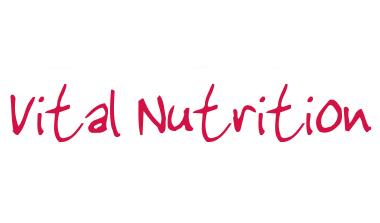New Year’s Diet Resolutions
Healthy DietToday’s the day to ring out the old and bring in the new. By tomorrow we will be making resolutions to be a better, healthier, fitter, slimmer or stronger version of ourselves.
New Year’s resolutions can be a good way to focus on health, and make changes for the better, but keep it real. Committing to one small change every week – like drinking an extra glass of water a day or having an extra portion of vegetables on your plate at dinner, is more realistic than a get-skinny-quick diet plan that you are likely to get bored of by the end of the month.
It’s the little things that matter, so here are some realistic resolutions are likely to stick around longer than the leftover turkey.
Don’t change your diet, change your breakfast!
Forget cereals and bread-based breakfasts and think protein first. Eggs, natural yoghurt, nuts and seeds or fish are good protein sources for breakfast that are more likely to help you feel fuller for longer, sustain your energy and help with your concentration.
Fast for 12 hours
Fasting for 12-14 hours overnight has been shown to have a whole host of benefits for health. From weight management to digestive health, better sleep to cardiovascular health. Keep it simple. Count 12 hours from the last mouthful of food you had yesterday before eating your first meal of the day. Just make sure you are not fasting for too long. Most people will get all the benefits of intermittent fasting from eating within a 10-12 hour window, with a 12-14 hour fast.
Eat 30 plant foods a week
The more diverse range of foods in your diet, the better for your nutrition and eating 30 plant foods a week has been shown to help support the diversity and abundance of bacteria in our gut microbiome, which has a whole host of benefits for our health. Fruit, vegetables, beans, lentils, nuts, seeds, herbs and spices all count.
Get hydrated
Make water the first thing that passes your lips every morning. Have a glass of water every time you pop the kettle on during the day and drink a glass with each meal and before you know it you’ll be drinking 6-8 glasses a day without too much thought.
Swap your carbs
Make the switch from white, refined and high GI grains to wholegrains. More fibre, lower glycaemic index and slower release, whole grains can help you to feel more satiated, balance appetite, reduce cravings and help with weight management. White rice, white bread, white pasta all act like sugar in terms of their impact on blood sugar, so make the switch for a better balance.
Check your sugars
Turn to the back of the pack and check out the nutritional information panel. Look for the line that says ‘of which sugars’ and then read the column to find out how many grams of sugar are in 100g in your pack. Low sugar cereal is 5g or less per 100g, and anything over 22g per 100g is high sugar. Even some health foods often contain a lot of dried fruit and sugars from other sources - all of which will spike your blood sugar, trigger an insulin response and cause fat storage, not to mention cravings, lack of concentration or mood swings.
Get some fresh air and daylight first thing
Many of us don’t see much natural daylight at this time of year, as we hibernate indoors in the winter months. Getting outside, even on grey and overcast days is likely to make you feel a whole lot better. If you can’t get outside in the morning, then even 10-25 minutes at lunchtime can make a difference.
Wishing you a happy and healthy New Year!







































































